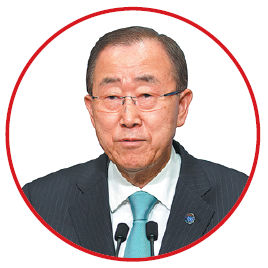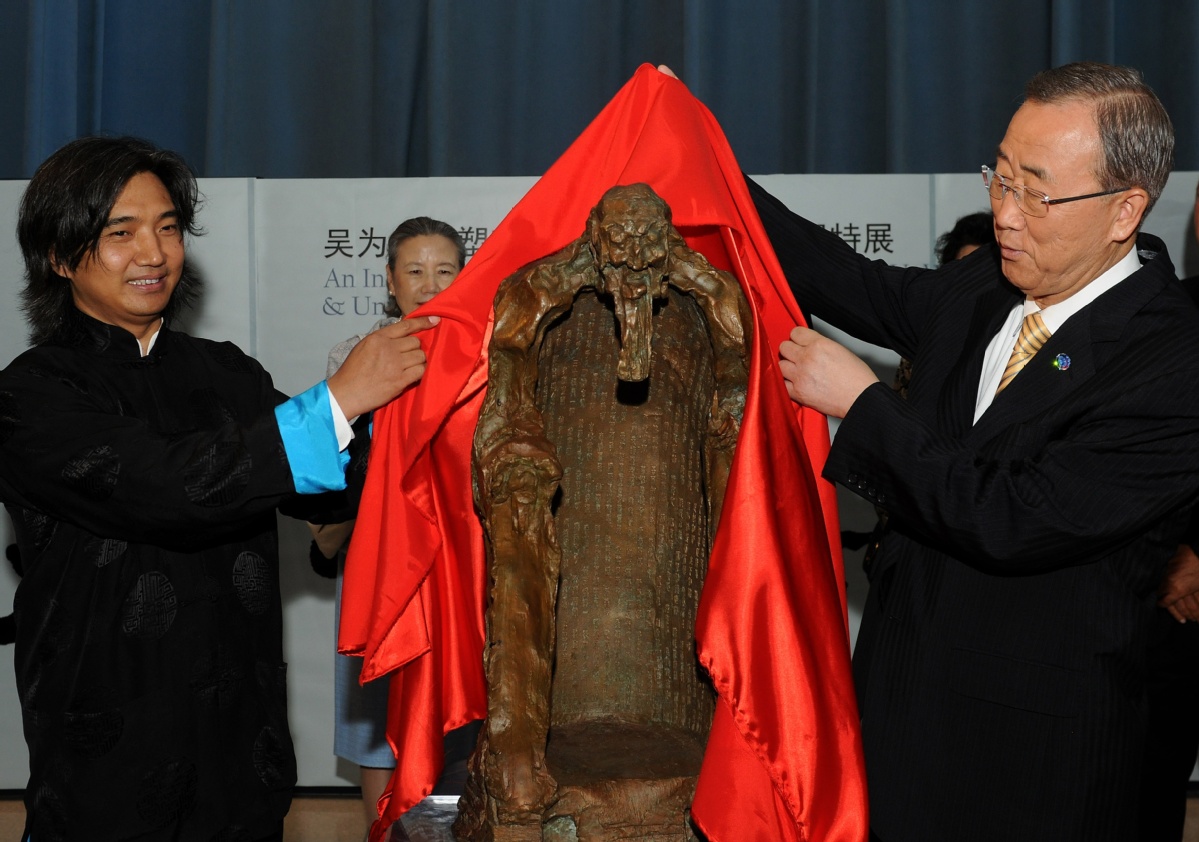
June 13, 1944
EDUCATION:
1970: BA in international relations from Seoul National University, Republic of Korea
1985: Master of Public Administration from Harvard University, United States
CAREER:
1987-90: Counselor at the ROK embassy to the United States
1990-92: Director of American affairs at the ROK Foreign Ministry
1995-96: ROK vice-minister for Policy Planning and International Organizations
1996-98: National security adviser to the ROK president
1998-2000: ROK ambassador to Austria
2000-01: ROK vice-minister of foreign affairs
2003: Foreign policy adviser to the ROK president
2007-16: United Nations secretary-general
2018: Chairman of the Boao Forum for Asia
Ban urges China to increase presence on world stage

Diplomacy, cooperation
"This alternative was based on the guiding belief that diplomacy and cooperation offered the international community a better way of resolving conflicts," he said. "I cherish peace, and because of this I especially cherish China's efforts to maintain peace."
He added that China's work to bring peace to the Korean Peninsula has been noted by the people of the area.
"Never in the history of the ROK and the Democratic People's Republic of Korea have we seen such an exciting process of reconciliation between the two countries," he said.
"China's efforts cannot be neglected. It has played a very important role by engaging with the DPRK leader Kim Jong-un three times this year. It's very important that Kim understands and learns from China's rapid industrialization and development through reform and opening-up. I think Pyongyang could gain a lot by opening up and engaging in the denuclearization process."
Ban has long been actively involved in issues relating to inter-Korean relations because his ties to the UN date back to 1975, when he worked for the ROK foreign ministry's UN division.
His work expanded over the years, with assignments that included serving as chairman of the preparatory commission for the Comprehensive Nuclear Test Ban Treaty Organization and chef de cabinet during the ROK's presidency of the UN General Assembly in 2001-02.
China's reform and opening-up had synergies with the country's due role and proper influence in the UN, Ban said, stressing that the thing he most appreciated was China's vision of "mutual prosperity and coexistence".
"My country, the Republic of Korea, is also benefiting from this Chinese philosophy," Ban said, adding that China's support was instrumental in the ROK gaining UN membership in 1991.
In April, Ban began work as chairman of the Boao Forum for Asia. He said his future career goal is to work with China and many other countries at the forum to fight more global challenges: "Our world is going through pronounced changes, and this is resulting in elevated uncertainties and new risks."
He said unilateralism and protectionism have become the main threats to the world, and while China continuously contributes to global financial and economic development, it can make a greater contribution.
"China should feel a sense of responsibility for global economic and financial development as a whole," he said, adding that the country's achievements are the result of multilateral trade liberalization, which has been the major factor in bringing about global prosperity, peace, and stability since the end of WWII.
He said he has seen more moves by China that are aimed at resisting the anti-globalization trend and deepening the country's integration with the global market. As an example, he pointed out that the first China International Import Expo, held in Shanghai last month, demonstrated the country's determination to expand opening-up and work with the international community on tough global issues.
"The expo was a great occasion to stress the importance of free trade and market liberalization, which should be learned by other countries," he said.
Ban also highlighted the Belt and Road Initiative, which will not only benefit people in participating countries but also build a community with a shared future for mankind.
At the Boao Forum for Asia in Hainan province in April, President Xi Jinping promised the nonstop continuation of reform and opening-up and a commitment to an open economy, which, according to Ban, "was significant for domestic development, as well as that of the international community".
"Because China is not going out on its own, it also sets an example for, and brings benefits to, other countries," he said.


